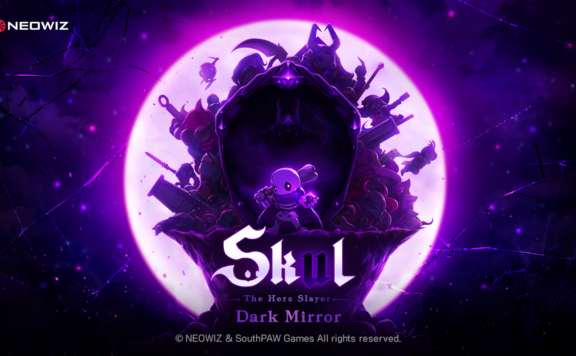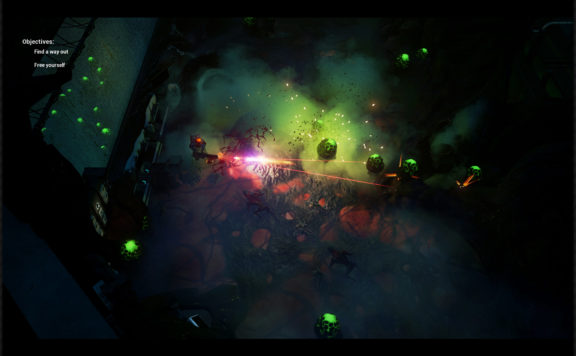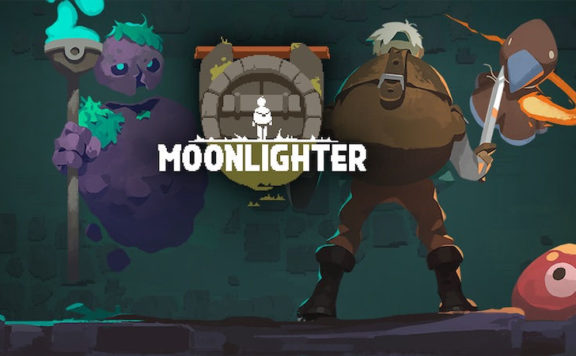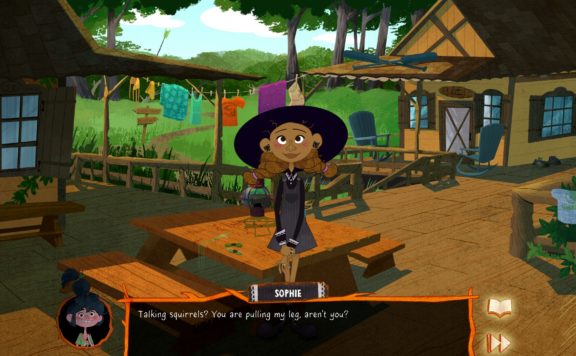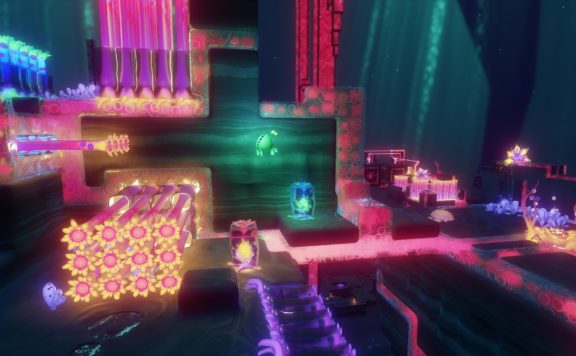What do you get when you take a rogue-like, twin-stick shooter, add a touch of platforming, and then pepper in a psychological perspective on grief from Elizabeth Kübler-Ross? Yes, you read that right… and if you are intrigued to know what you could possibly get, good! In this case, you get a game like Revita. We had an opportunity to spend some time with this up-and-coming indie title and, within this article, we are going to share our initial thoughts.
So, what is Revita? As mentioned above, Revita is a rogue-like, platforming, twin-stick shooter stylized with a neo-classic aesthetic akin for games like GearEnd or Iconoclasts. Released in partnership with Dear Villagers, this brainchild of solo indie developer Benjamin Kiefer (BenStar) takes you on a journey, battling their way from Memoria Station to the many floors of the great Clocktower.

The controls and gameplay are fairly straight-forward. As a twin-stick shooter, the default controls use the right thumbstick to aim a spectral gun while the right one moves your nameless character around. Attacks, jump, and dash are all mapped to the bumpers, allowing easy access to these functions while still aiming and moving about the screen. In my preview, I used an Xbox One controller.
Being a rogue-like experience, you can expect that you are going to spend a fair amount of time dying as you learn the controls and unlock access to power-ups. That is, however, is all weaved into the story experience. Where this takes an interesting turn is that each of the level guides you through the Kübler-Ross Model, commonly known as the Stages of Grief. While there are only three stages currently found within the game, players will face off against bosses that are representative of each phase in the model.

While attempts at this kind of real-world concept might seem forced in some respects, the motif works surprisingly well in Revita. For example, the first boss encounter is connected to the first stage of grief: denial. Denial is represented by a monstrosity comprised of multiple TV screens. This character design works extremely well considering our most common form of distraction and coping in our modern era: screens. From a behavior standpoint, the boss telegraphs some of its moves through distractions, but Denial will also disappear from the screen and reappear. This is not unlike the waves emotion that ebb and flow at the beginnings of a tragic event.

This commitment to the theme doesn’t end with boss design, it exists within the story beats that we get and it connects to everything else within the world of Revita. Throughout your journey, you have the option to sacrifice pieces of your soul. In some instances, this sacrifice is to become more powerful, in others, it is the choice to give a part of yourself to help someone else find their way.
These moments can power progression for a price, but these sacrifices are neither permanent nor are they required. Your drained soul (the cost of this progression) can be restored as you press into the fight and lost souls can be ignored. But ignoring these moments of pain can lead to painful curses.

This is, yet again, where Retiva’s theming pays off. Dealing with grief can be extremely painful, but expressions like this, I believe, can open up good points of conversation about how we handle them and the hope that exists on the other side. While no one really likes to go through moments of tragedy or loss, isn’t it true that each of us has (or will experience) someone whose journey in grief has helped our own.

That the moment, Revita is an incomplete experience. Right now, it is made up of three zones with multiple levels that make up each zone. For now, we are going to hold off on giving it a final score until after a full release. However, for a game that has only recently entered Early Access on Steam (March 3rd), it feels surprising, albeit lacking some levels to round out the total experience.
Note: Our Early Access copy was reviewed on Steam with a code provided by PR.
COMPARE TO: ScourgeBringer, Skul: The Hero Slayer



